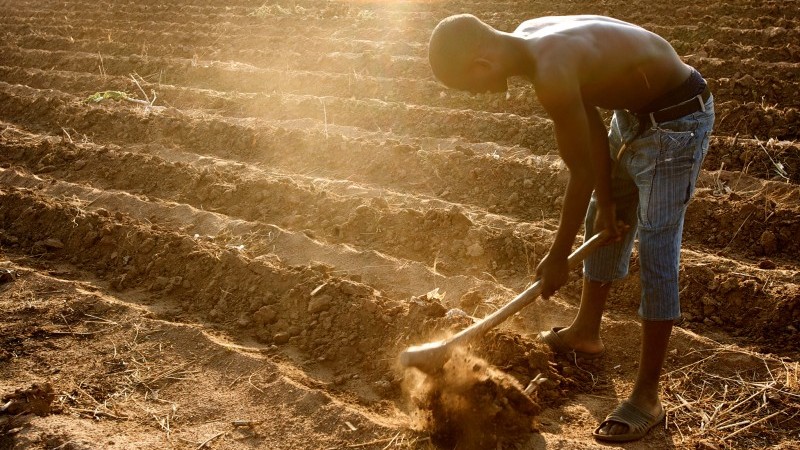The wealthiest countries on earth are failing to take seriously the need to speed up the money they have promised to help the poor cope with climate change, the head of the Africa group of climate negotiators said on Thursday.
In 2009, developed countries have promised to deliver $100bn a year by 2020 in public and private fund to help struggling countries cope with climate change. Estimates of current flows range between $17bn and $61bn.
Under the Paris Agreement, signed in 2015, rich nations also agreed to create a higher target by 2025.
But at UN climate talks in Bonn, Seyni Nafo, who leads the group of African states, said the rich were refusing to advance even on procedural discussions around finance.
“Uncertainty on climate finance. That is at the the highest level right now,” he told Climate Home News.
The heads of the Africa group and least developed countries (LDCs) group have made climate finance their top priority for the meeting. But progress in the talks and outside is flagging.
“Where are we seriously on the $100bn? What’s happening on the ground? Are we seeing any significant change on the ground? The promise of this post-2025 goal. When are we starting that discussion?” said Nafo.
“We haven’t reached yet a confidence crisis, but [African heads of state] are becoming a bit anxious now.”
He said at least five African heads of state would be present at the meeting, whereas only two – France’s Emmanuel Macron and Germany’s Angela Merkel – would come from Europe.
“We feel that as a region we have done everything we could, we have put everything on the table. We are demonstrating leadership, seriousness on this issue. Actually we don’t have a choice,” said Nafo.
“We simply feel that that same level of commitment is not there [among the developed countries].”
A recent investigation of climate finance flows by Carbon Brief found India received the highest level of single country funding of $725 million approved by multilateral climate funds between 2013 and 2016. It was followed by Ukraine at $278m and Chile at $262m.
At a press conference, the chair of LDCs, Gebru Jember Endalew, said the uneven distribution of finance was troubling.
“We saw that trend and it’s challenging,” he said in response to a question from Climate Home News.
“We need to be assisted more with adaptation funds to cope with the impacts of climate change,” he told reporters. He added that 13 million people from his country, Ethiopia, and its neighbours, Kenya and Somalia are at the risk of facing hunger because of drought.
He praised the German government for its €50m contribution to the Adaptation Fund, which will benefit the most vulnerable countries.
A Climate Policy Initiative (CPI) report published ahead of the conference found that a 12% decline in funds meant for climate change in 2017 initiatives was a result of a 10% plunge in technology costs, particularly solar.
Endalew said it was encouraging and would make it easier for poor countries and move away from fossil fuels.
“However, we need access to finance to be able to access the technology,” he said.
Climate Home News’ reporting at Cop23 is supported in part by the European Climate Foundation.
